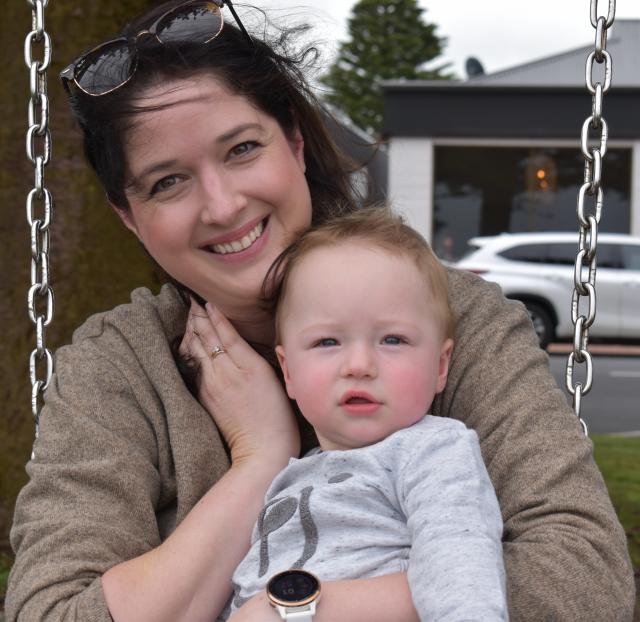
Aidan Curtis
ACCESS to child care is continuing to be a major thorn in the sides of local parents, prompting a Port MacDonnell woman to try and take matters into her own hands.
Tegan McPherson has been unable to get back into the full-time workforce after the birth of her son, Caden, around a year ago.
She and her partner have had Caden on childcare waiting lists for over 12 months now and still do not expect to successfully get him into childcare for at least another six.
Ms McPherson said while she appreciates getting to spend time with her son, not being able to get back to work is causing her a lot of stress and frustration.
She said she is lucky her employer is flexible and she is able to work one day a week, but coming back to full-time would be the ideal.
“We’re a family that is used to having two incomes coming in, so being down to one income, there’s the financial strain,” she said.
“The work I’m doing is quite strategic for the community with Council and that’s where I love to use my brain, and I’m not getting that full opportunity.
“It’s probably the first time, as a woman, I have felt that gender inequality around the system not supporting women to meet their full potential from a work perspective.”
She said she is also worried about how a lack of access to early childhood education might affect her son, who she described as “quite a social kid”.
“Knowing that I can’t, on my own, offer him that social enrichment and development opportunity that child care offers, I feel like he’s missing out,” she said.
“I’ve been taking him to a playgroup and my mothers group, we try and socialise our children, but it’s not the same as having that exposure to other adults that can teach them different things.
“It’s not so much being worried for his development, but it’s almost that feeling of being able to provide him with everything I want to provide him with.”
Ms McPherson decided to write an open letter to both Mount Gambier MP Troy Bell and Federal Barker MP Tony Pasin, highlighting studies and projected child care models that could benefit the region.
“My key ask of Troy Bell and Tony Pasin is can they look at how we can apply that report to our context or do the local research to see and advocate for that,” she said.
“If state government could look at how they could apply that model in South Australia, then that could address some of those challenges.”
In response to the letter, Mr Bell said while child care sits under the Federal Government, a Royal Commission into early childhood education was recently announced at a state level.
He said this, coupled with $4.7 billion allocated to child care over the next four years in the Federal Budget, shows that governments are taking the issue seriously.
“I know there is no quick fix and a decade of underinvestment has led to the current situation, however positive steps are being taken to address the funding side of the situation,” he said.
“The challenge now is to get our centres that have capacity employing the staff to service our region’s child care needs.”
The Border Watch contacted Mr Pasin for comment on the letter, but he did not respond by the time of publication.
However, Mr Pasin has targeted regional childcare for some time, recently celebrating the allocation of funding for a purpose-built child care centre in Kingston.
During a session of parliament on Wednesday night, Mr Pasin spoke on Kingston and the need for more work to be done at a Federal level.
“No amount of money allows a young mum or a young father to get back into the workforce because child care is simply not available,” he said.
“[The funding] is more money than you can fly a rocket ship over, but it doesn’t buy one additional place.
“It doesn’t train one additional early childhood educator.”
Ms McPherson said she hopes to see the State and Federal Governments work together to “change the overarching system” to bring more childcare to regional areas.







